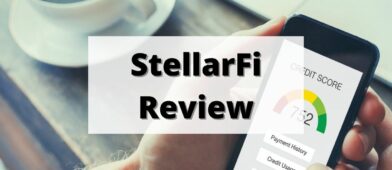When I started working, I tracked my spending down to the penny in a spreadsheet that I named the Budget Bible. (it was borrowed from my friend)
Over the years, that spreadsheet has morphed into a document that primarily tracks our net worth. It tracks our bank accounts, our investment accounts, as well as our tax filings each year. It’s a living document that has evolved over the years. I can’t imagine managing our financial life without it.
(the title says budget but the article will focus on anything regarding finances and numbers – so it can be budget, tracking net worth, tracking investments, whatever)
That said, we still use some personal finance tools in managing our money. The spreadsheet is the core but we do have tools that support it.
Today, I want to talk about how, despite those tools, there are reasons why budgeting with a spreadsheet is still king. And will always be king.
Table of Contents
It’s a Custom Tailored, Living Tool
Spreadsheets can be as simple or as complex as you need. What you track, what you calculate, what you put into reports or charts and other visualizations… you build it to what you need. Spreadsheets are amazingly powerful but they can also just be a simple log of transactions.
You can start with a budget spreadsheet template and customize it or start completely from scratch. As there is no rush, you can just tweak it over time to fit your needs.
Tools are powerful because they can get you started very quickly, often for free, but they are never perfect because everyone’s needs are different.
It’s like buying a suit. You can go to any store and buy a suit off the rack. You’ll get a suit very quickly and it will fit decently well.
Or you can go to a tailor and get measured for a suit that they make custom just for you. That will take far more time but the suit will fit perfectly.
To stretch the analogy even further, when your body changes, you can get the suit tailored to match. Your spreadsheet can be adjusted as you go through your life’s adventures. What your life looks like at twenty will not be the same as in your thirties, forties, or sixties.
You can’t change a tool, but you can update your spreadsheet.
Many people who look for a better tool than Mint are often graduating beyond simple budgeting. They enjoyed Mint but want to do more investing and tracking their whole net worth, not just focus on budgeting.
You Can Build Your Own Reports
What I love about my spreadsheet is that I have built all the reports I need.
My summary sheet gives me a quick snapshot of our finances. I know our net worth, our liquid net worth, as well as where our cash is. It’s pulling from cells in my Assets sheet but organized in a way that is less cluttered.
I also have secondary sheets that are useful like one for my taxes. I’ve recorded a few of the lines from my Form 1040 into a sheet – including Wages, Interest, Dividends, Capital Gains, Total Tax, and calculated figures like effective tax rate.
It’s fun to see that in 2006, I only had $50 in dividends. By 2015, that figure would be over $50,000. (There’s no secret to the huge increase – I sold a business in 2010 and put much of the proceeds in the stock market)
When you build your own reports, you can build calculations all over the place. You can calculate some of these important money ratios and you’re always aware of your ratios. This is especially helpful for those ratios that track your progress, like your Net Worth Ratio (Age X Pretax Income / 10), which comes from The Millionaire Next Door.
Tools Change, Disappear, Get Acquired
There’s a concept in business called platform risk.
It’s when you build a business that relies on another business. Instagram influencers, Youtube stars, Twitch streamers, and the like are very popular these days but they rely heavily on third-party platforms. If something happens to Instagram or Youtube or Twitch, those businesses suffer.
Personal finance tools often change from year to year and sometimes they get acquired or go bankrupt. If you rely on those tools, you’re subject to those risks and that can be very annoying if a tool goes under when it’s a key cog in your financial machine.
Users of Quicken have experienced this quite a bit. The tool was created by Intuit, experienced a lot of competition from Mint (and many switched), and sold to H.I.G. Capital in 2016. If you were a long time user of Quicken, you “enjoyed” these changes first hand. Many Quicken users complain about support too. Tools stop synching with some accounts as interfaces change. They lose features, add features, get more complicated, get simpler – you have no control.
A more recent example is Google Finance. I loved Google Finance but I guess not enough people did because Google shuttered it and many scrambled to find a replacement.
Spreadsheets will never go under. They also, fundamentally, don’t change. It’s a ledger.
It’s like worrying that a calculator will disappear. It won’t disappear. 🙂
Manual Tracking is Still Best
When taking notes, writing it by hand adds an extra layer that helps your memory. A lot of the value in taking notes is in writing them down. That’s why you’d have tests where you could bring in a sheet of notes for help.
The same applies to your budget. By manually entering in data, you add an extra step that makes the spending and saving more tangible.
While this can be time-consuming, it does have the benefit of pushing you to simplify your finances. Before I started, I had a lot of online bank accounts because I’d open them to review the process. It became cumbersome to log into them just to record $50 here and $25 there. (and trivial to close them!)
When you get started, manual tracking will be your friend.
As you and your system mature and you lose the benefits of manually tracking, it’s important to lean on tools like Tiller. They can keep your process going even if you don’t feel like it. You don’t want to abandon tracking because of data entry! Tiller will handle the automation for you and pull data on your behalf.
Here are 10 free printable budget worksheets you can try.
You Can Write Notes!
Notes are KEY.
I wasn’t good about putting in notes when I started. It wasn’t until later that I started keeping notes (literally right click and add a “New Note” on a cell) and it has changed how we use our spreadsheet.
Your memory is probably good for the last year or so. It also remembers the big events in your life.
But does it remember what happened in December 2012?
My Vanguard account had a big increase that month, but why? If I tried to remember today, in 2019, I’d stand no chance. I could make a guess but it would just be a guess. And I wouldn’t be confident in my guess.
But it turns out I rolled over a 401(k) into my Vanguard Rollover IRA. Answered in seconds because of notes. That was a really mundane example but that’s exactly why notes are important. You don’t remember mundane! And certainly not many years later!
Your notes remember for you.
Your Data is Safer
The cloud is pretty safe. But there are risks.
When I talked with Personal Capital about their data security, I felt confident my data was secure. But with any service, having the data out there means there is a greater than 0% chance of something happening. If my data is not out there, nothing can happen to it.
When people ask me for alternatives to Quicken, one important factor is keeping their data local. They don’t like Mint or Quicken Online because they don’t want their data in the cloud.
The best solution is to use a spreadsheet you store locally. While there are still risks, as someone can break into your computer or steal your laptop, that’s on you. It won’t be anyone else’s fault. 🙂
Do you use a spreadsheet to track your finances? What do you track? Any fun calculations you make that I can steal? 🙂




Steveark says
Sound like you have a great system! I would caution you that spreadsheets do indeed change. Maybe only old guys like me know that. Originally Visicalc was the only spreadsheet, then Lotus 123, then Symphony. Eventually Excel became the main one. But even Excel has changed. I had a 3,000 line macro written in Excel when they changed their macro language to visual basic, rendering it useless. At some point in the future you might have to completely recreate your spreadsheet if they rewrite their platform again.
Mighty Investor says
I calculate all financial returns for my family by hand each year in early January. I think having to look at each position individually, see how it has performed, and do the simple algebra helps keep you intimately aware of what is happening in the portfolio.
So, I agree. The online tools are handy as well, but it is good to go manual sometimes — so as not automate away a deep understanding of your portfolio (and personal finances in general). After reading your post here, I think I should lean on excel even more.
Doing it manually can be a bear, especially if you only do it once a year (I keep a cheat sheet that explains what I do for once-a-year tasks like that), but it’s very educational and gets you so close to your money. I don’t calculate financial returns but I do have other once a year tasks that are similar.
Oracle of FI says
Nice article Jim,
No matter what tools they invent in the future, I find that spreadsheets will remain the most customisable option out there. I use one for my invesments and love that I can change things around the way I want.
My only gripe is that it can lag a bit in performance when you add too many formulas. But yeah, nothing can beat infinite customizability.
My formulas are all very simple so no lagging here. 🙂
Robert says
This posts sings to me. I created excel spreadsheets to track my budget, net worth, financial accounts data, beneficiaries, planned retirement income by year, future minimum required distributions, pension options, social security options, almost everything securely help in one password protected excel workbook. For security purposes, I will purchase a new computer that will be dedicated to financial use only. No email accounts except financial institutions. When working on spreadsheets, i’ll work offline. Admittedly, I’m a little freaked out about someone cleaning out an account. So, I felt this is the best option along with two factor authentication accounts only. I also, backup to a locked thumb drive monthly and rotate a copy stored in a safety deposit box quarterly.
I looked at Personal Capital, it couldn’t track everything I wanted, my son used Mint, he just didn’t like it, so he went with the “family excel workbook”. Like the article said, it’s relatively simple and fully customizable.
Honestly, I only track net worth quarterly and then calculate actual portfolio return rates annually. I had to create a formula to record actual portfolio returns to account for additions and deletions throughout the year. (Not perfect, but close) The only sheet I look at frequently is the budget since we must enter expenses as they happen.
The cell note option is news to me. I’ll be looking at that later today. Sounds like a great tip.
You can get one of those inexpensive Chromebooks or some other laptop for that. It’s basically replicating what the government does with classified systems – only classified stuff (though you’ll be connected to the internet). It’s a good approach if you’re concerned.
When I started adding notes, I was kinda stingy about it because I didn’t like the red triangle. Now, I put it whenever I want. 🙂
R Morse says
Any personal finance templates for Apple Numbers spreadsheet? You only talk about Microsoft Excel.
Good question – I only talk about Microsoft Excel because I don’t use/have an Apple Numbers spreadsheet. I’ll look around and see my friends have any recommendations.
d says
I still use Quicken to track my 20+ credit cards and bank accounts and couldn’t find a replacement. I tried Personal Capital and Mint but they don’t have the reconcile feature to let you mark the transactions reviewed and reconcile the account at the end of month. I need the feature to catch un-authorized transactions. GnuCash is another tool I tried, it is local, free and easy to use, but they can’t connect to the banks and download the transactions automatically.
Florie from Hawaii says
Aloha Jim, I totally agree. I’m a retired Accountant, and Excel spreadsheet is my Baby. I’ve used spreadsheets for the Powerball (8 individuals paid $1.00 each, twice a week), my travel list (easy to forget Roku streaming stick if not on the list), and friends address/ph #’s (ok, I’m Old School). I want a paper back-up for important stuff. I’ve typed non-fiction stories on Excel because I can edit it faster than on “Word” document. Yay, spreadsheets!
Lazy Man and Money says
I use Google Sheets to cover some of my investments. What I like about it is that I can import current stock prices and other real-time stock information. There are ways to do it into regular desktop spreadsheets, but I like this system for investments.
I use regular spreadsheets for everything else. It is great to go back to 2006 and see growth.
Pat says
This is all fine and dandy if you know how to create the spreadsheets you need. I don’t understand why nobody has suggested any excel templates to use or what templates they used. Or maybe somehow give us more detail in what is in these spreadsheets, maybe pictures of the different spreadsheets. But by just keep confirming that it is great to use Excel spreadsheets does not help. Please offer some real help for people to keep track of their finances. It is exactly because people don’t know how to create the spreadsheets needed to keep track of their finances that they go with the automated apps and programs. So it is not best to use Excel spreadsheets if you don’t know how to create them.
Robert – all those spreadsheets that you created sound awesome. I only wish they were available to purchase or at least just look at pictures of them.